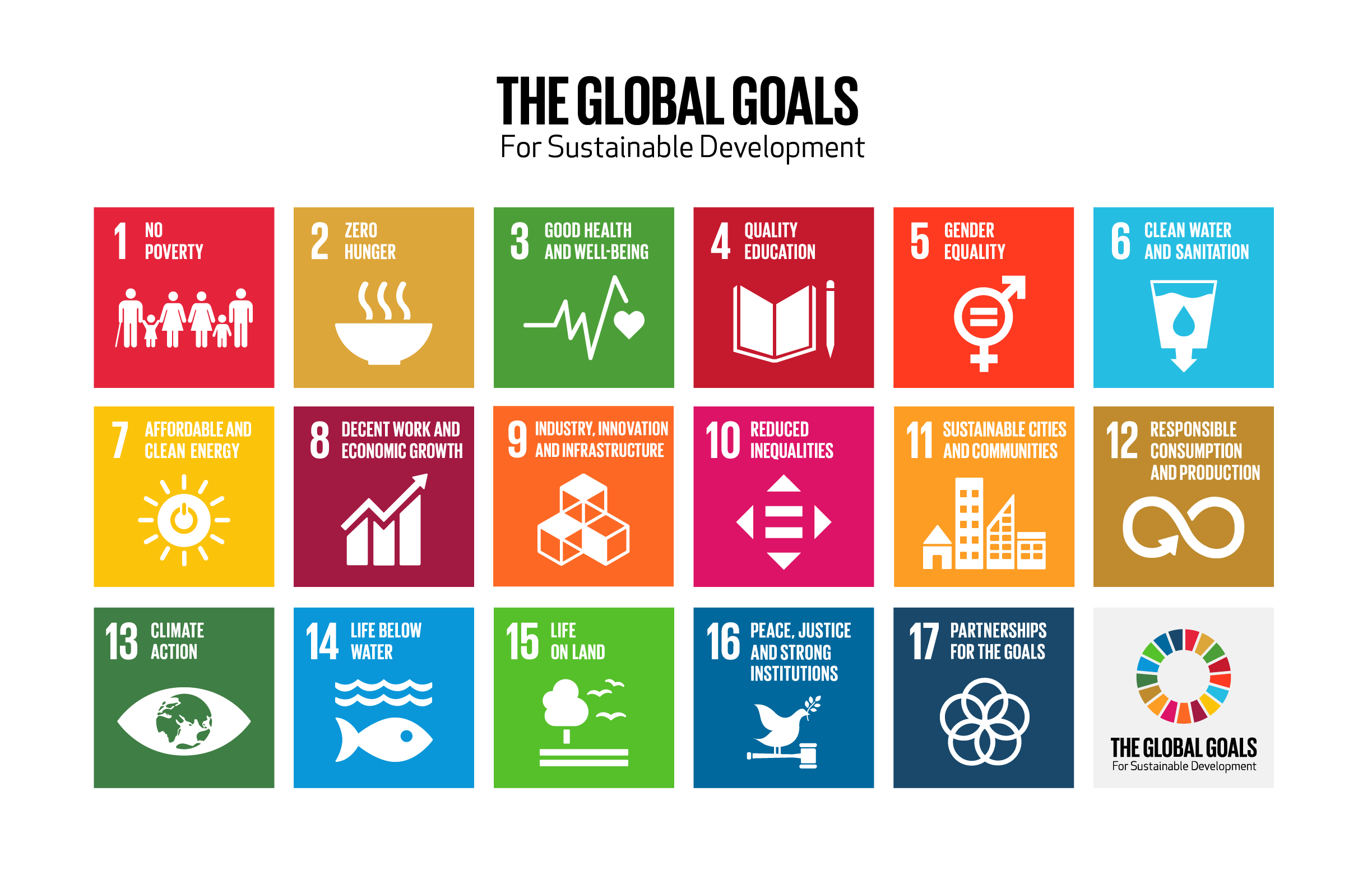As part of our 2018 procurement strategy the university has challenged itself to embed sustainable purchasing into its day to day activities. Rising to this challenge will help us to better manage our social and environmental impact.
This strategy commits us to;
- Ensuring that the suppliers we use are obligated to minimise waste in both goods and the packaging of goods
- Promoting a culture that exhausts the potential re-using and recycling of goods before the purchasing of new ones is considered
- Accounting for our total supply chain costs from the sourcing of materials, through manufacturing, delivery, packaging and eventual end-of-life disposal
- Making a formal commitment to the protection of equality and diversity standards within our supplier contracts
In addition, we have made a commitment to use the UN Global Goals as a benchmark for sustainable purchasing. The 17 goals are a call for action to promote prosperity whilst protecting the planet. 190 countries have agreed to work towards these goals in in order to make our world a better place by 2030.
Carrying out the normal day to day activities of a university can be taxing on the environment and our social communities. Whilst many of us have good intentions about how we use university funds and resources, our behaviours can sometimes lead us to act in ways that are needlessly costly.
Surplus purchasing is an example of this, where we choose to buy new items despite not having used up or appropriately disposed of existing items. Examples of recent items that were found earmarked for disposal (and were subsequently retrieved) include;
- Office Chairs (value £137 each)
- Filing Drawers (value £108 each)
- An Apple iPad (value £490)
- Office Desks (value £135 each)
- A Bluetooth Keyboard (value £19)
Where possible, the university donates these items to local charities who auction them in order to raise funds for their causes. However, it raises the question – if these items are in good enough condition to sell, then why are we choosing to replace them?
For some items, such as electronic goods, there is a data security concern as well as the cost of throwing them away. For furniture, we can arrange to have them refurbished and repaired at a fraction of the cost of buying new items. Wastefulness is a poor habit that we can all take the time to address.
Tackling our surplus purchasing will particularly help us meet Global Goal number 12 – which asks us to be responsible in our consumption and production. Our targets to help us meet this goal include;
- Promoting sustainable purchasing
- The sustainable management and use of our resources
- Substantially reducing our waste generation
- Responsibly managing our waste disposal
- Promoting the understanding of sustainable lifestyles
- Challenging the encouragement of wastefulness
Some changes can be made quickly, others will be slow and gradual. All change begins with a single decision to take action.
If you wish to learn more about sustainability and the university’s wider activities that are being introduced in order to manage our social and environmental impact, please get in touch.
Further information about the UN Global Goals can be found here;

